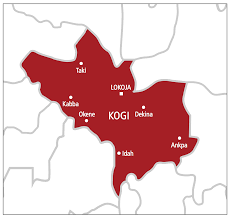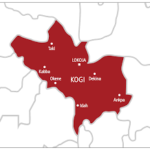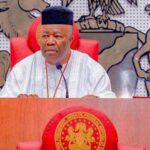Respite has come to the inhabitants of Bagana, a town in Omalla Local Government Area of Kogi State, after eight years of communal clash that led to the destruction of lives and property.
Daily Trust reports that Bagana had been a ghost of its former self as the inhabitants had deserted the town and economic activities came to an abrupt end.
- NIGERIA DAILY: Why Epilepsy Is A ‘Disgrace’ To Society
- Russia-Ukraine conflict: CPPE lists implications for Nigeria’s economy
The truce was brokered at the weekend in the town by a committee under the aegis of Kogi East Neighborhood Watch (KENW) piloted by Dr Simeon Omakoji Oyiguh and Col Suleiman Babanawa (retd), in conjunction with the local government chairman and leaders of warring factions.
The community of about 50, 000 people is multi-ethnic. Settlers from various ethnic groups had formed it many years ago. These early settlers had lived in peace and worked together for the development of the community and even encouraged inter-ethnic marriage.
Among the ethnic groups in Bagana are Hausa, Igala, Agatu, Fulani, Ebira Koto, Nupe, Kanuri, Kakanda and so on.
The community has an economy that is driven by people who rear cattle, engage in rice farming and milling.
Because of its strategic location, and the borders it shares with neighbouring states like Nasarawa, Benue and the Federal Capital Territory, people from these states come to Bagana to trade at its main market, which is opened for business every five days.
The inhabitants of Bagana and its environs were full of joy when the committee visited the town in their final lap at the weekend.
In a bid to encourage the people to return home, the KENW committee has reopened the town market, which had been shut for months in the wake of the crisis.
Oyiguh appealed to the warring factions in the crisis to sheath their swords and embrace peace through the window opened by the committee made up of eminent personalities from the senatorial district.
He bemoaned the level of destruction, loss of lives and untold hardships caused by the crisis.
Stating that security had been designed and mobilised to the community to keep a vigil on the town and its environs, he said the committee hoped to restore the community to its position as the hub centre of the trading and economic activities dated back to the colonial era.
Oyiguh said the committee, in the interim, had directed the Hausa, Igala, Ihankpe and Otutubatu groups to fashion out an all-inclusive vigilante group to beef up the security of the town.
He added that the men of the Nigerian Navy would reinforce the local vigilante on market days to provide security to lives and property until the final solution to the crisis.

 Join Daily Trust WhatsApp Community For Quick Access To News and Happenings Around You.
Join Daily Trust WhatsApp Community For Quick Access To News and Happenings Around You.


